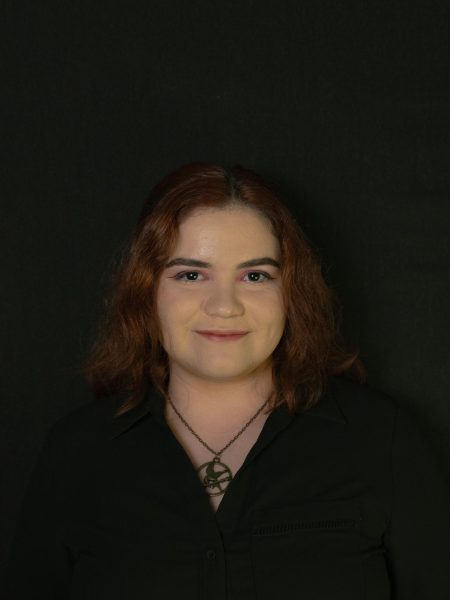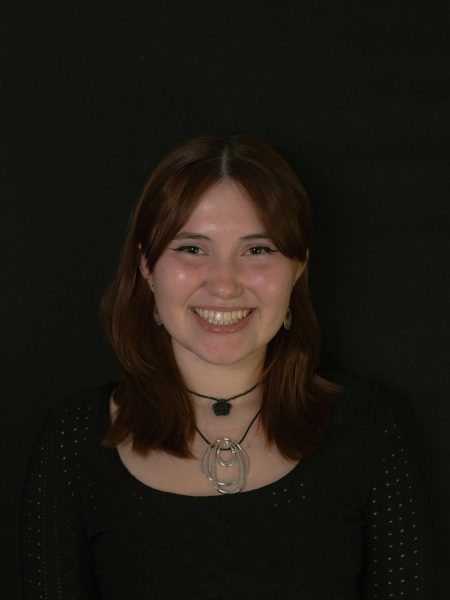This year, UTSA became the first and only university in the United States to offer a Medical Doctor and Master of Science in Artificial Intelligence (MSAI) dual degree opportunity to its students. The 5-year program is a collaboration between the UT Health Long School of Medicine and UTSA’s University College.
“The whole point of this program is to make sure that our next generation of healthcare providers get the most recent, cutting-edge technology that they can use towards treatment of patients,” Senior Vice Provost for Graduate and Postdoctoral Studies and Graduate Dean Dr. Ambika Mathur stated. Mathur is a distinguished professor in the departments of chemistry and molecular microbiology and immunology.
With the new dual degree program, UTSA is empowering its students to thrive and enabling them to be prepared for the incoming age of artificial intelligence.
“If we do not provide the physicians or healthcare providers of the future with the technology that is going to be so integral in their clinical settings or in their day-to-day lives, we are not really putting them in an advantageous position,” said Dr. Dhireesha Kudithipudi, UTSA’s Robert F. McDermott chair in engineering and head of the MSAI program.
The idea for the program originated when UTSA was first developing its MSAI program. Mathur met with the dean of the medical school at UT Health and they developed the beginnings of the idea together. She went on to meet with the deans of other colleges at UTSA that had also expressed interest in AI.
“When I approached them with this, there was a lot of excitement there too, and just bringing all the colleges together, bringing the programs together and creating one unique program,” Mathur said. “I think that’s what was very innovative about this.”
UTSA’s MS in AI offers three potential tracks for enrolled students: Analytics, Computer Science and Intelligent and Autonomous Systems. All of these are available to students pursuing the program, who need not necessarily have any experience in programming or computing to enroll.
The program is designed to ensure that students with minimal preparation can enter the service. “It serves as an entry point to those students rather than an expectation that they already know a lot,” Kudithipudi explained. The program offers core courses such as Intro to Machine Learning, Intro to AI and AI Practicum, a course taught by Kudithipudi that helps students understand what some of the safeguards are that people have to think about when AI is deployed in the real world.
When asked about the ethical concerns when using AI in healthcare settings, Kudithipudi asserted that the ethical deployment of AI is of prime concern to all researchers in the AI community.
“There is a lot of active dialogue happening in how to address some of these concerns, like whether there are biases that the system is going to bring in [and] whether there are inequalities that the system is going to extrapolate,” Kudithipudi said. She believes that training healthcare practitioners in how AI models work will provide them with a better chance of catching incorrect or unbalanced information the system is providing them with and thus, reduce these concerns.
Further, this dual program allows its students to interact and work with students solely pursuing the MSAI, which is an asset to the field. “There is cross talk between them,” Mathur said. “Our students are learning about what the healthcare needs are and are benefiting directly from that knowledge, which they can apply towards creating new information systems and algorithms.”
This new dual degree program puts the university at the forefront of the medical field and is garnering attention from all over the United States. “We are almost like the epicenter right now,” Mathur said, explaining how UTSA is bringing in people from across the country to train with UTSA faculty and increase the university’s reputation, rankings and visibility.
In many ways, the new program is “putting the UT System on the map,” much to the delight of everyone involved. The program has had much support from UTSA and UT System leadership.
“The university has been behind it from the get-go, the Provost and the President. There has been a lot of support there and from the UT System,” she said. “They have been supportive in making sure that the program is being disseminated across so that people are aware of it.”
“The way I felt the support was whenever there was a stumbling block,” said Kudithipudi. Launching a new degree program is a long, drawn-out process in academia and developers need to do their due diligence to make it happen and overcome any challenges. “The leadership stepped in and helped reduce those barriers, otherwise things would not move as quickly,” she said, elaborating that “There was support at multiple points from UTSA leadership and same with the system, with the pace at which they approved this program.”
The program will continue to grow as it is put into practice, to make sure it remains as beneficial as can be to students. “We need to make sure we stay on the cutting edge as things advance to stay on top,” Mathur said. “I really do not foresee major challenges because there’s so much support from both institutions to make it successful.”
The dual degree in Medicine and AI has made UTSA a pioneer in the AI field, furthering the university’s academics and publicity. For more information about the program, including application requirements and important deadlines, visit uthscsa.edu/medicine/education/ume/mdmsai.














